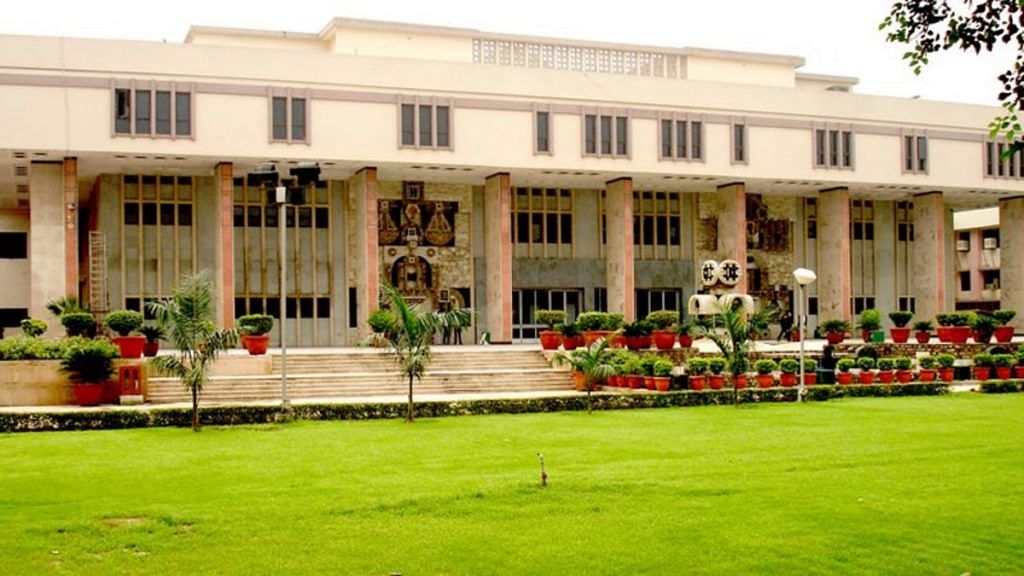New Delhi: The Intelligence Bureau (IB) has trawled through the Facebook account of a lawyer, recommended for appointment as a judge in the Delhi High Court, to look for proof of his sexual orientation as he is believed to be gay and also collect information about his live-in partner.
Sources in the Supreme Court told ThePrint that information collected from Facebook and other sources have been sent to the apex court and is meant to be placed before the collegium to enable it to take a decision on the appointment.
A final decision on the lawyer’s elevation, however, is not likely anytime soon as Chief Justice of India Ranjan Gogoi is due to retire on 17 November and the composition of the collegium will subsequently change.
The lawyer’s sexual orientation is common knowledge in the Delhi High Court even though he has never spoken about it nor tried to hide it, the sources said.
One source in the Supreme Court said the IB was asked by the government to collect additional information about the lawyer. Most of the information collected by the agency was from the lawyer’s social media accounts, especially Facebook, the source said.
The IB found several pictures of the lawyer with his partner on his Facebook account. None of the pictures “look offensive or objectionable”, the source added.
Also read: Caste no bar, class no bar, art no bar: Justice Chandrachud on why freedom and art are soulmates
‘Lawyer’s partner could be a security risk’
The lawyer was recommended for elevation by the Delhi High Court collegium unanimously in October 2017. The HC’s proposal was then sent to the Supreme Court and the central government. Following this, the IB was asked to give inputs about the lawyer.
In its report, which was sent to the SC collegium, the IB said the lawyer is gay and lives with his partner, who is a foreign national and could pose a security risk.
Sources said the lawyer’s partner has worked with the World Bank and several other international organisations.
Although the government didn’t directly object to the lawyer’s elevation, the Supreme Court collegium, which deferred its decision at least thrice earlier, chose not to take a final decision and sought more information about the lawyer.
The last time the collegium deferred its decision was on 1 April this year.
A second source in the Supreme Court told ThePrint that some senior judges, who knew about the background of the lawyer and were consulted by CJI Gogoi’s predecessor Justice Dipak Misra, had supported the Delhi HC’s recommendation.
“The material (information) is with the CJI’s office and it will be placed before the collegium whenever a decision in that regard is taken. It is for the collegium to clear or reject the name or even, if it deems fit, keep it pending for further discussion,” added the source.
‘IB’s inputs drawn from court corridor gossip’
A third source in the Supreme Court, aware of these developments, told ThePrint that most inputs given by the IB are often “drawn from court corridor gossip”.
“In recent times, the Intelligence Bureau has been giving a lot of inputs about candidates recommended by collegium of various high courts. A lot of what the IB says is highly subjective, much of it is without any real basis and often drawn from court corridor gossip,” the source said.
“Just because a lawyer is gay and has a foreigner as a live-in partner, (it) can’t be a ground for denying him the post of a judge,” the source added.
SC had last year decriminalised homosexuality
The Supreme Court had on 6 September last year read down Section 377, which criminalised consensual sex between homosexual adults.
In its historic verdict, a five-judge bench of the top court had referred to the offensive clauses that criminalised consensual same-gender sexual relationship between consenting adults as “irrational, indefensible and manifestly arbitrary”.
The bench had also underlined the fact that Section 377 was being used to harass members of the LGBTQ community, thereby allowing discrimination against them.
Any discrimination against a person for being in a same-sex relation was violative of his fundamental rights, the bench had ruled.
Also read: Year after homosexuality was decriminalised, equality a distant dream for LGBTQ community
